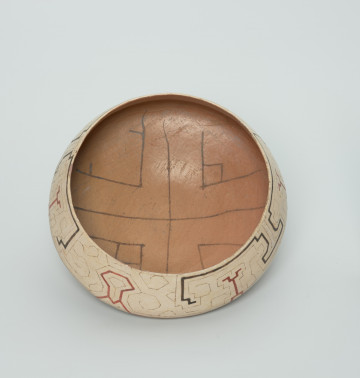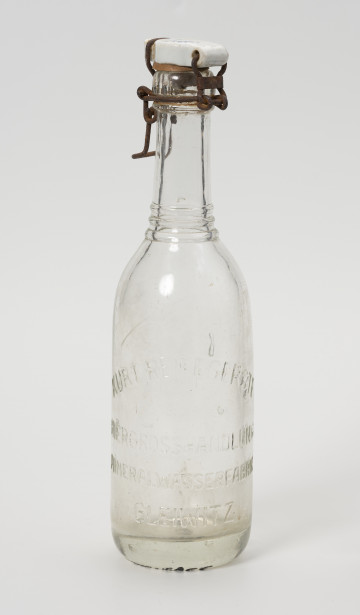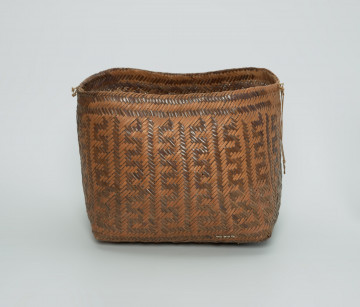
Vessel for drinking
około 1947
National Museum in Szczecin
Part of the collection: Crafts of the Amazon Indians
The National Museum in Szczecin houses over 1,500 American objects. The collection of Amazon artefacts was initiated in 1981 in cooperation with the Ecological Expedition of the University of Silesia in Katowice. Thanks to this expedition, approximately 60 exhibits from the tropical forests of Peru found their way to the Szczecin museum. The presented chomo vessel for storing water and massato, beer made of cassava tubers, comes from this collection. The traditional pottery of the Shipibo Indians of Peru is made without using a potter's wheel. The Indian women make their pottery by sticking clay rolls together one after another. Shipibo pottery can be divided into unpainted pots for cooking and painted pots for storing and serving liquids and food. The painted vessels, which include chomo presented here, are not intended for cooking. After being lined, their surfaces are carefully smoothed. The dried dishes are then covered with paint, also carefully smoothed, which forms the background for the ornament, which is made a few days later. After this process, the dishes are fired. Immediately after firing, chomo is covered with a layer of resin, which provides impermeability and adds lustre to the geometric patterns covering the vessel. All the patterns used by the Shipibo Indians are based on the principles of horror vacui, symmetry and alternating line direction. This vessel is mainly covered with a pattern called quene. These are rows of rounded and angular lines in the upper part of chomo. The body is decorated with a zigzag pattern, which is interpreted as a hands or wings motif. Natural pigments such as clay from the Ukajali basin and soft slate are used to paint the pottery. Thin lines are applied with small brushes of human hair, while thicker lines are painted with a bundle of cotton. The Shipibo Indians have a fragmentary knowledge of the meaning of the designs used but still preserve them in the belief of their medicinal, spiritual and aesthetic value.
Katarzyna Findlik-Gawron
Author / creator
Dimensions
cały obiekt: height: 26,7 cm, diameter: 36,6 cm
Object type
vessel (container)
Creation time / dating
Creation / finding place
Identification number
Location / status

około 1947
National Museum in Szczecin

1900 — 1945
National Museum in Szczecin

około 1941 — 1960
National Museum in Szczecin
DISCOVER this TOPIC
Museum of King Jan III's Palace at Wilanów
DISCOVER this PATH
Educational path